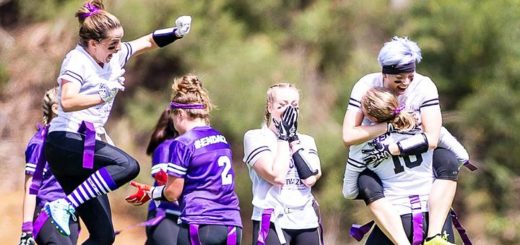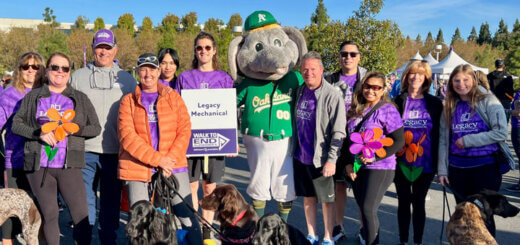Butte County teen writes essay to honor grandfather
Mia, a ninth grader who lives in Butte County, lost her grandfather, Walter, to Alzheimer’s last summer. When her mother shared the news with her, Mia felt like a bomb exploded in her life. Mia channeled that feeling into a beautiful essay she wrote for her English class. She shares the memory of her grandfather and suggestions for others who have a loved one living with dementia.

Spending time with Pa
Walter, who Mia called “Pa,” was a patient and genuine man. He told his grandkids bedtime stories, went snorkeling in the lake and brought them special gifts. “He made every person around him feel like his best friend right away,” said Mia. “He was that solid friend that would help you with whatever you needed.”
Pa was known for his ability to share a good story. “We would spend the whole day waiting for bedtime in order to hear the stories,” shared Mia. “You never knew what story he’d come up with this time.”
When Walter was diagnosed with Alzheimer’s in 2014, his stories went in a new direction. Mia said, “He would tell us stories about when he was an ironworker, and all the dangerous stuff he did back then. It was easier for him to remember the past than things that had happened more recently.”
Writing an essay
Walter passed away in the summer of 2019. While it wasn’t unexpected, it came as a blow to Mia and her family. It made such an impact on Mia that when her ninth grade English teacher asked the class to write about something that affected their lives, she chose to write about losing her grandfather to Alzheimer’s.
“I made a list and wrote down moments that were important,” shared Mia. “I was nervous to write about Pa because I wasn’t sure I would do him justice. My mom said, “˜You won’t know if you can write it if you don’t try,’ so I wrote it.”
Mia received an A on her assignment and shared the story with her family. Her grandmother, Walter’s wife, was so proud of Mia, she shared her essay with the Alzheimer’s Association.

Mia’s essay
Our staff were impressed and moved by Mia’s essay. We have included a short excerpt below. You can read the full essay here.
“¦ I saw him telling us stories, far past a bedtime my mother would have deemed acceptable, stories he made up as he went. Tales of sasquatches in the forest with families and drama more endearing than Friends. Asking us questions about the names for his characters or what they should have for dinner. Sometimes he fell asleep and so we would shake him, willing him to finish the story. Or at least the chapter.
I saw him snorkeling in the lake, with his circle waist life jacket and my brothers grabbing on and being dragged alongside him as they all searched for something other than little minnows and crawdads. I saw him covering my eyes with his strong, gentle hands and dropping a pink and purple unicorn pillow pet on my lap, the day I stayed home sick from school at their house.
I didn’t see him calling me Lisa (my mom’s name) and I didn’t see how my Grandma wouldn’t tell him when it was her birthday or their anniversary, because she knew it would make him feel bad for forgetting. Because even when he was sick with Alzheimer’s, he was still the most patient and generous person I have ever met. In those moments, after the bomb, all I saw was the times I chose to remember him by”¦.
Asking questions about the past
Mia wants others to know that just because a person has Alzheimer’s, it doesn’t mean they’re a completely different person. Mia says, “It’s still the person you love.”
She recommends having compassion. It doesn’t help to remind your loved one of what they’ve forgotten. Instead you should ask them about what they can remember.
“He could remember so many stories from his past,” said Mia “We’d ask him about when Grandma was younger or his job. I think it was a nice feeling for him to be able to remember something.”
Mom and daughter team up
Mia is lucky to be surrounded by a supportive family, especially her mom Lisa. Whenever Pa called Mia by her mom’s name, or when she was worried about him, Mia knew she could lean on her mom for support and advice.
Mia and her mom also joined together to volunteer at their local Walk to End Alzheimer’s. “We volunteered at the event last year,” said Mia. “We helped with set-up by hanging up signs. I’m really looking forward to walking the route this year.”
Alzheimer’s disease can be a difficult subject for kids and teens. Learning more about it can help families learn what to expect. Find more resources to help kids and teens at alz.org/kids.
Sign up today for your local Walk to End Alzheimer’s at alz.org/walk. If you’re interested in becoming a Walk volunteer click here.
Learn more:

















